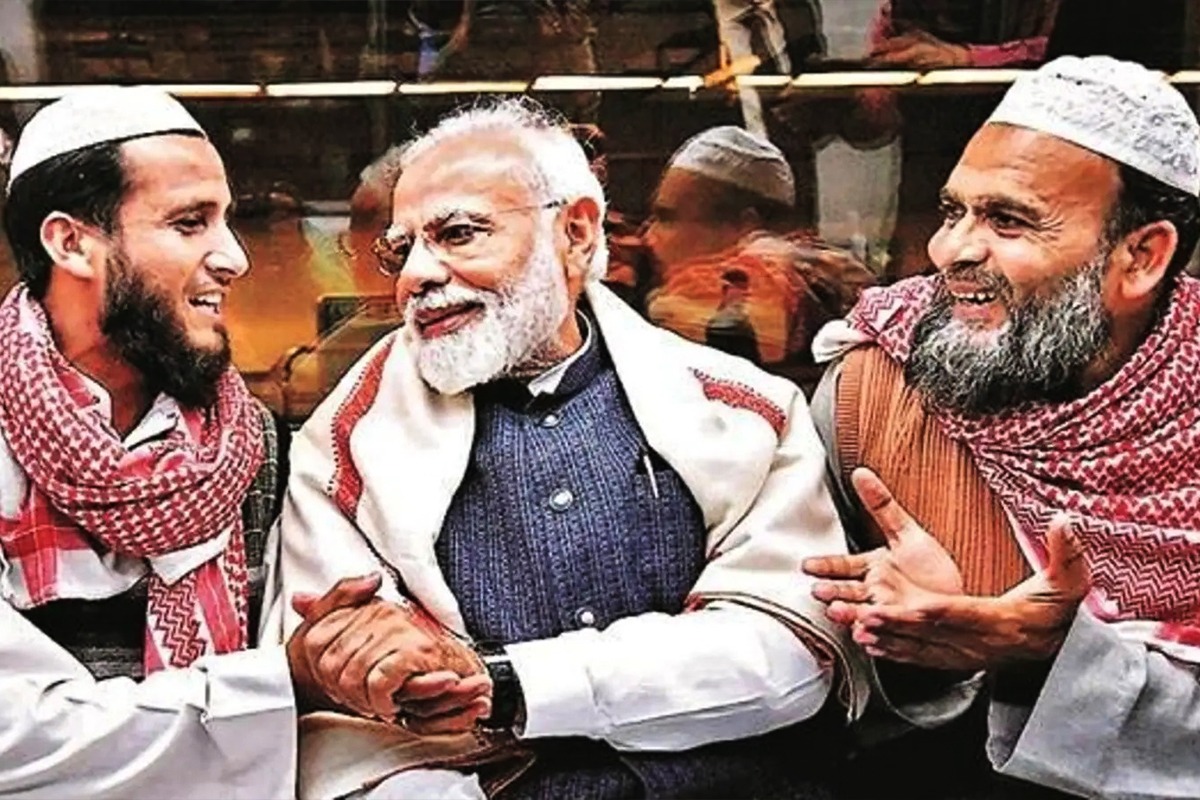Scholars and critics hold varying perspectives on the BJP’s stance on Hindu-Muslim relations. Some argue that the BJP has transformed over the years, with events like the Mandal agitation acting as a catalyst. Others contend that under Prime Minister Narendra Modi’s leadership, anti-Muslim sentiments have intensified, and the government has pursued a Hindu nationalist agenda that overlooks the rights of Muslims. Critics claim that BJP officials have disregarded violence against Muslims, fostered division through disinformation and hate speech, manipulated the media, suppressed progressive voices, and empowered Hindu supremacist groups.
However, some scholars argue that the BJP has implemented welfare measures benefiting all communities and is dedicated to overall development. On the other hand, opposition parties say the BJP’s exclusion of Muslims is deeply problematic and contributes to the marginalization of India’s Muslim population, characterizing it as “unacceptably barbaric.”
In a recent article, the author of Hindu Rashtra, Ashutosh, analyzes this tectonic shift in the BJP’s opinion of Muslims in the past decade, highlighting that it did not field any Muslim candidates in the past two Assembly and parliamentary elections in UP but has now changed its position. He indicates that a dialogue has emerged within the RSS top ranks, expressing concerns that the BJP’s anti-Muslim rhetoric and hatemongering may yield short-term electoral gains but could tarnish Hindutva’s image and hinder the RSS’ goal of unifying Hindus and promoting Hindutva as a tolerant religion in the long run.
Ashutosh mentions the Jan Sangh’s (RSS’s political wing) first election manifesto, which acknowledges Muslims as integral to society but expects them to adopt an Indian way of living and discard “foreign methods”.
ALSO READ: Dawkins needs to study the evolution of Indian thought
Some other opinion pieces and reports published this month examine BJP’s treatment of Muslims, potential motivations behind its recent actions, and the internal dialogue within the RSS regarding the consequences of anti-Muslim rhetoric.
Recently, it was reported that the BJP is aiming to convince Muslims, who are reluctant to support the party, to at least become “Modi Mitra” or friends of Prime Minister Narendra Modi. The party is particularly focusing on 15 constituencies in Uttar Pradesh with a significant Muslim population, including Moradabad, Bijnor, Saharanpur, and Muzaffarnagar. The party aims to win these seats, including Rampur and Azamgarh, which it lost in the previous by-polls. To achieve this, the BJP’s minority front plans to engage with influential Muslims to promote a better understanding of the party’s policies and effectively deliver government messages.
To put it in perspective, around 4.5 crore Muslims have benefited from various government schemes, such as the PM Awas Yojana, Swachh Bharat Mission, and Ujjwala Yojana, which provide housing, sanitation facilities, and free gas cylinders. The BJP’s efforts also include establishing a dialogue with Sufis to garner their support. These outreach initiatives are aimed at countering opposition parties who have gone a step ahead to allege that the saffron party would snatch away the constitutional rights of Muslims if it returns to power in 2024.
Noted columnist Swaminatha Iyer aptly sums up this change: “For me, the most unexpected change in the ninth year of Narendra Modi’s rule has been the fielding of a record 391 Muslim candidates by the Bharatiya Janata Party (BJP) in the Uttar Pradesh municipal elections, of whom 61 won.”
BJP’s ally, the Apna Dal (Sonelal), fielded a Muslim for the Suar Assembly by-election, who also won. The state has 17 municipal corporations for the largest cities, and the BJP won all 17 mayoral posts with Hindu candidates. But in smaller cities—where the local body is called a nagar palika panchayat—32 of the BJP’s 199 candidates for chairmanship were Muslims, and five won. While the number of Muslim candidates remains relatively low compared to the total candidates fielded by the BJP, this change signifies a significant departure from the party’s previous approach.
Others highlight BJP’s recent efforts to woo Muslim communities, particularly the Pasmanda Muslims, who are considered Dalit and Backward Muslims. In a nutshell, there seems to be a broad consensus among observers that the BJP, known as a Hindu nationalist party, historically had an aggressive Hindu agenda but has now started targeting a larger share of Muslim votes, along with the support of Hindus.
UP chief minister Yogi Adityanath, despite facing allegations of defaming Muslims, appointed former ABVP leader Danish Azad Ansari from the Pasmanda community as a minister.
ALSO READ: Pakistan’s power play: Key factor in India’s strategic flexibility
Experts suggest that if the BJP can secure even a fraction of the Muslim vote, it could be crucial in close elections, as Muslims constitute approximately 15% of the total vote. The success of this strategy in UP municipal elections may lead the BJP to field more Pasmanda Muslim candidates in general polls next year.
The issue of Hindus having their own political party, without it being seen as promoting communalism, is being acknowledged and discussed in 2023. While liberals initially welcomed the rise of the All-India Majlis-e-Ittehadul Muslimeen (AIMIM) as a prominent Muslim political party at the national level in 2020, some raised concerns about the unequal treatment of religious and caste-based parties. They pointed out that Muslims, Christians, and various castes are allowed to have their own political parties, while this right is denied to Hindus alone. To address these concerns, there is a need for greater integration of Muslims within the largest Hindu party, although there is still a long way to go in achieving this goal.
While some may question the necessity of religious-identity-based parties in a secular India, the reality is that secularism in the country has often been superficial, with mainstream parties offering token representation to Muslims. Forming alliances with Muslim or Dalit parties, based on power-sharing and agreed policy approaches, could potentially turn a political weakness of yesteryears into the future strength of the Republic of India.
YOU MAY ALSO LIKE:









